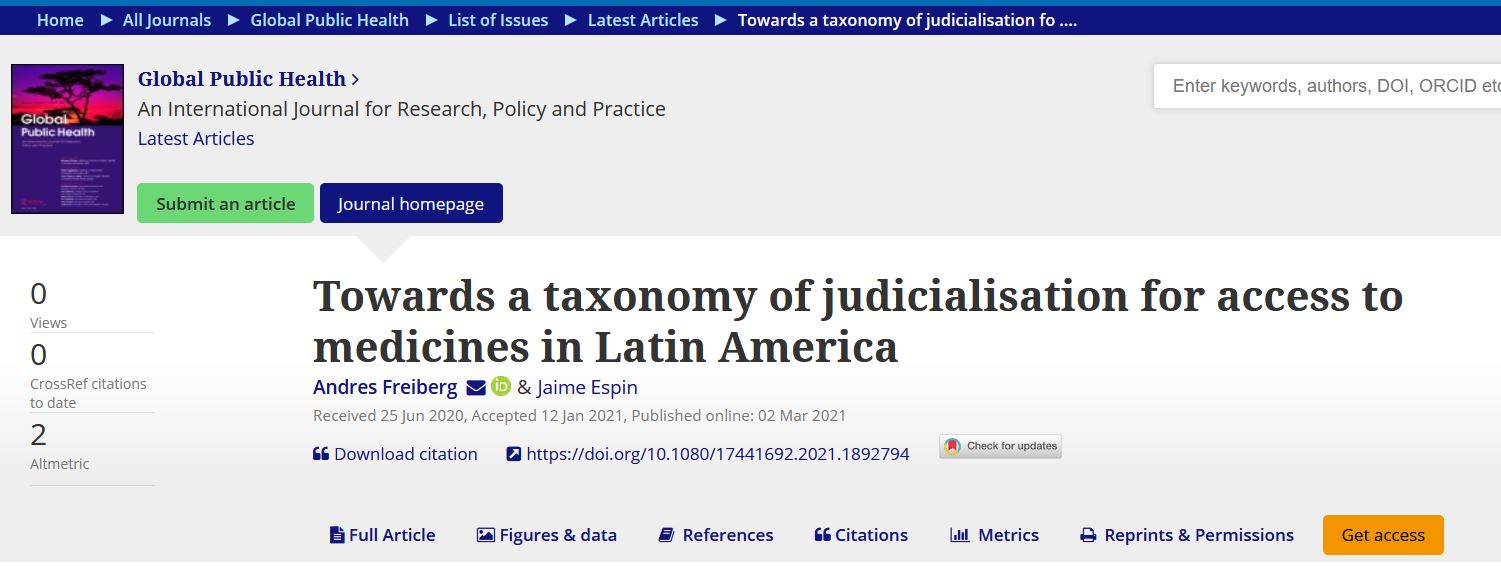
In Latin America, ‘judicialization’ for access to healthcare refers to thousands of different claims, conditions, technologies and circumstances. Its impact depends on what is ‘judicialized’, why, for which benefit, and at what cost to society. Since judges cannot, by themselves, reduce medical uncertainty – or price tags – their health systems are exposed to costly adjudications based solely on interpretations of right to health, or life. The result is a low-governance, inefficient system for deciding coverage. We reviewed lists of judicialised medicines in Argentina, Brazil, Chile, Colombia, Costa Rica, Mexico, and Uruguay, dividing them into types A, B and C. We propose a debate by type, and that judges, facing litigation type-C, consider mandating coverage conditional on results, as requisite for reimbursement.


